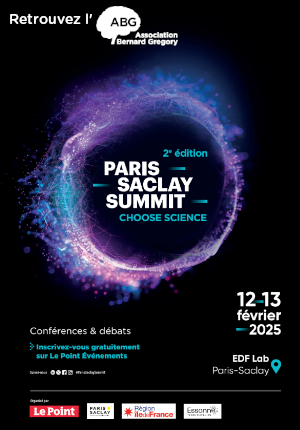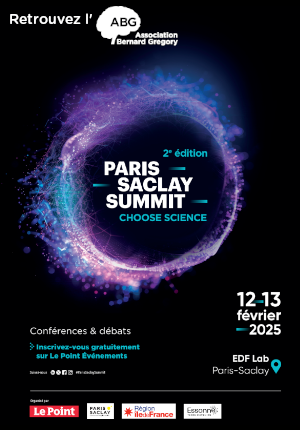COFUND PhD position – Artificial Intelligence
| ABG-128017 | Thesis topic | |
| 2025-01-20 | EU funding |

- Materials science
- Engineering sciences
Topic description
Title of the thesis project: An AI-Driven Approach for Minimally Disruptive Repairs of Reinforced Concrete Maritime Ports in Response to Climate Change
Scientific description of the research project
Reinforced concrete (RC) structures are vital components of coastal infrastructure underpinning the safety and prosperity of the adjacent nature and urban populations. However, these structures are increasingly threatened by chloride-induced corrosion, a major factor contributing to their deterioration, especially in marine environments. Chloride ions penetrate concrete, leading to the corrosion of steel reinforcement bars, which compromises structural integrity and reduces the lifespan of these infrastructures. Chloride ingress is widely impacted by surrounding environmental conditions including climate change. In addition, extreme events and sea level rise lead to an intensification of the loading regime of such structures and hence increased demands. Finally, climate mitigation and environment protection objectives are compromised by the implementation of new constructions or extensive reconstruction activities.
This PhD topic focuses on the development of an innovative framework to enhance the resilience and sustainability of this coastal infrastructure in the face of climate change. The main objectives are:
- To study, performing experimental and numerical research, the effectiveness of innovative repair techniques using an inventory of predesigned solutions with advanced composite materials, such as sprayable polymers, and preformed textile concretes that can be rapidly applied (minimally disruptive) to strengthen RC structures affected by chloride-induced corrosion and increased loads.
- To create an artificial intelligence (AI) -based modelling methodology for predictive maintenance, specifically tailored to coastal concrete infrastructures and enabling proactive management of structural health and performance.
- To establish a multi-criteria framework for evaluating repair strategies and lifetime assessment, focusing on robustness, resilience, sustainability, and minimal operational disruption for concrete structures in port systems, and extend this to other types of coastal concrete infrastructures (e.g., bridges, renewables, underwater tunnels).
This PhD topic involves several scientific challenges in the context of durability of RC structures located in coastal and maritime areas. First, it focuses on utilizing advanced modelling techniques at both material and structural scales to (i) accurately assess the extent of chloride-induced corrosion damage in RC structures, and (ii) evaluate the effectiveness of various repair and strengthening methods. Second, the research aims to investigate, by experimental and numerical studies, the long-term performance and environmental impact of composite materials used to repair/strength in harsh coastal environments, ensuring that these materials meet the durability requirements essential for sustainability. Third, a key challenge is to enhance the accuracy and reliability of physical and AI models through rigorous experimental validation, which is crucial for developing predictive tools that can be used to formulate maintenance, rehabilitation, and adaptation strategies for coastal infrastructure. Finally, this study will also address the challenge of the formulation of repair strategies (time and extent of repair) considering multiple criteria: costs, durability, and environmental impact.
To tackle the scientific challenges associated with this thesis, a comprehensive methodological approach will be employed. Laboratory experiments and small-scale on-site pilot studies will be conducted to evaluate the mechanical properties, durability, and overall performance of RC beams with and without being repaired/strengthened with composite materials under simulated environmental conditions that mimic coastal exposure. These experiments will be designed to assess both material and structural component scales, providing critical insights into the behaviour of composite materials in harsh coastal environments. In parallel, advanced numerical models will be developed to simulate the mechanical behaviour of repaired RC structures, considering various factors such as material degradation, repair techniques, and loading conditions. This simulation work will enhance understanding of how these structures perform over time. These models involve non-linear and coupled partial differential equations that should be solved in space and time as well as several sources of uncertainty. Therefore, an AI-based surrogate model will be developed to facilitate lifetime assessment, enabling the formulation of sustainable maintenance strategies that optimize the longevity and resilience of coastal infrastructure. Finally, this AI-based surrogate will be integrated in a framework for evaluating the effectiveness of repair strategies based on multiple criteria, including cost, durability, and environmental impact.
The first outcome of this PhD thesis will be the development, through comprehensive experimental and numerical research campaigns, of effective and sustainable repair methods that can be quickly implemented with minimal disruption to ongoing operations in infrastructure systems. The research will also result in the creation of reliable and validated physical and AI-based models capable of accurately predicting the performance of repaired structures under a variety of environmental conditions, including potential future climate change scenarios. This predictive capability, in particular for AI-based models, will be paramount in guiding maintenance and rehabilitation efforts. Furthermore, the establishment of a comprehensive framework for evaluating the effectiveness of repair strategies will provide a systematic approach to decision-making, incorporating multiple criteria such as cost, durability, and environmental impact. At the end, the developments of this PhD thesis will enhance the ability of stakeholders to select optimal repair solutions contributing to the resilience and sustainability of concrete components in ports (like berths/quays, jetties, container yards and crane runways) and provide a scientific basis for maintenance activities in similarly susceptible coastal infrastructures (e.g. rail/road transportation, energy, and civil defence).
Main tasks
T1 State-of-the-Art Review: This task will establish the current knowledge base and identify gaps for further research. The PhD student will conduct a comprehensive review of existing literature on chloride-induced corrosion damage (including mechanisms and modelling), repair and strengthening methods, multi-criteria lifetime assessment, probabilistic and AI methods, and climate change-related actions.
T2 Design and Realization Experiments: This task will start with the development of a detailed experimental design aimed at evaluating the mechanical properties, durability, and quality performance of composite materials and RC repaired components under simulated environmental conditions relevant to chloride exposure. This task will involve selecting appropriate materials, defining testing protocols, and outlining methodologies for data collection. Once the experimental design is validated, the PhD student will execute the experiments in the laboratory. He/she will collect and analyze data to assess the mechanical properties and performance of composite materials, and interpreting results to draw conclusions about their suitability for use in chloride-exposed environments.
T3 Model Setup and execution: Model setup concerns the creation of advanced numerical models to simulate the deterioration processes as well as the mechanical behaviour of repaired RC structures. This will require defining the parameters for degradation, repair methods, and loading conditions to accurately reflect real-world scenarios. Once the model setup is completed, the PhD student will execute the numerical simulations and analyse the results to understand the mechanical behaviour of the structures under different conditions, providing insights that will inform repair strategies. This stage also encompasses the validation of the model using the experimental observations collected in T2.
T4 AI Surrogate Model Development and execution: This task initiates with the development of an artificial intelligence surrogate (Artificial Neural Network) model designed for lifetime assessment under a changing climate. The inputs of this model are climate change predictions, material properties and repair features, and the outputs encompass durability and safety indicators. Validated models from T3 will be used to develop the database employed to develop the AI Surrogate. This task involves setting up the model framework, generating the database and, preparing it for implementation. Once the AI surrogate is built and validated, it will be used to assess the performance of maintenance strategies for chloride-exposed RC structures.
T5 Establish Multi-Criteria Framework: this task involves developing a structured approach to evaluate and compare the effectiveness of the solutions taking into account multiple criteria such as cost, durability, and environmental impact. A suitable multi-criteria decision-making method will be employed to evaluate these alternatives, followed by sensitivity analysis to test the robustness of the results. The findings will be documented and presented using visual tools, allowing for iterative refinement based on stakeholder feedback.
T6 Thesis Writing: This task will formally start in the middle of the PhD but we will encourage the PhD student to constantly advance in the writing of the manuscript. This task will involve articulating the research context, methodologies, results, and implications of the study. This stage will end two months before the defence.
T7 Dissertation preparation: Once the thesis is submitted to the committee, the PhD student will focus on the preparation of the oral defence.
Starting date
Funding category
Funding further details
Presentation of host institution and host laboratory
Since its creation in 1993, La Rochelle University has been on a path of differentiation.
Thirty years later, as the university landscape recomposes itself, it continues to assert an original proposition, based on a strong identity and bold projects, in a human-scale establishment located in an exceptional setting.
Anchored in a region with highly distinctive coastal features, La Rochelle University has turned this singularity into a veritable signature, in the service of a new model. Its research it addresses
the societal challenges related to Smart Urban Coastal Sustainability (SmUCS).
The new recruit will join the Laboratory of Engineering Sciences for the Environment (LaSiE).
Cotuelle: Rostock University (UROS), Germany. Chair of Concrete Structures and Infrastructures Engineering.
Institution awarding doctoral degree
Candidate's profile
Research Field
Engineering
Education Level
Master Degree or equivalent
Vous avez déjà un compte ?
Nouvel utilisateur ?
Get ABG’s monthly newsletters including news, job offers, grants & fellowships and a selection of relevant events…
Discover our members
 PhDOOC
PhDOOC  CESI
CESI  Nokia Bell Labs France
Nokia Bell Labs France  SUEZ
SUEZ  Généthon
Généthon  ADEME
ADEME  Tecknowmetrix
Tecknowmetrix  CASDEN
CASDEN  MabDesign
MabDesign  Aérocentre, Pôle d'excellence régional
Aérocentre, Pôle d'excellence régional  ANRT
ANRT  Groupe AFNOR - Association française de normalisation
Groupe AFNOR - Association française de normalisation  Ifremer
Ifremer  Laboratoire National de Métrologie et d'Essais - LNE
Laboratoire National de Métrologie et d'Essais - LNE  Institut Sup'biotech de Paris
Institut Sup'biotech de Paris  ONERA - The French Aerospace Lab
ONERA - The French Aerospace Lab  TotalEnergies
TotalEnergies  MabDesign
MabDesign  Institut de Radioprotection et de Sureté Nucléaire - IRSN - Siège
Institut de Radioprotection et de Sureté Nucléaire - IRSN - Siège






